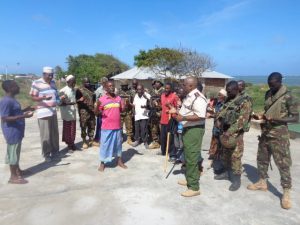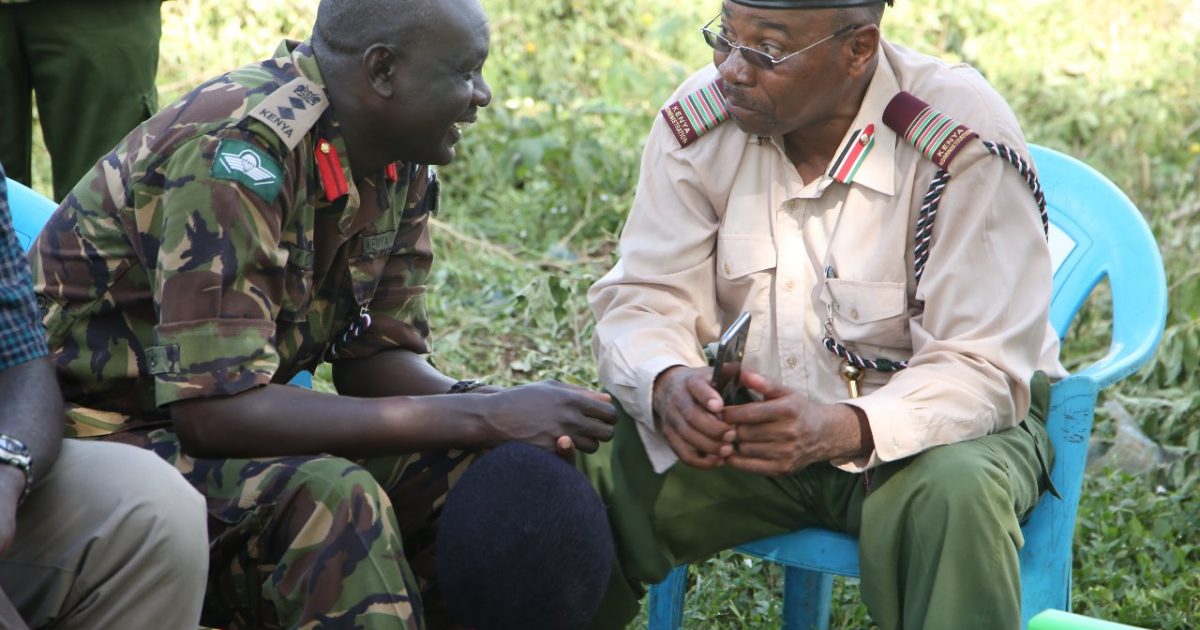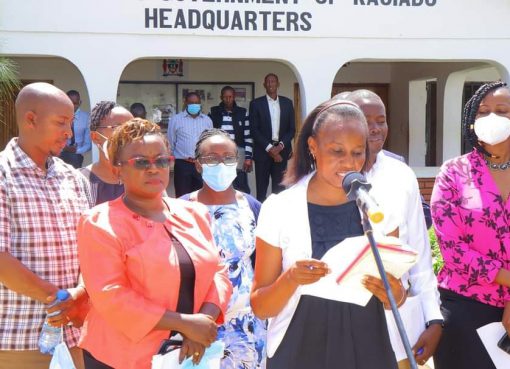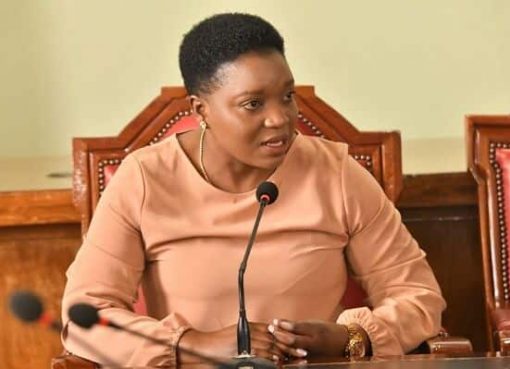At least 90 families in Ishakani village along the Kenya-Somali border in Lamu County will benefit from five water storage facilities with a capacity of 700,000 litres built by Kenya Defence Forces, aimed at improving water security among marginalized communities within the County.
According to KDF officials, troops based at the Kiunga Military Camp built and handed over five underground rainwater harvesting tanks to Ishakani residents.

Speaking to KNA today, KDF in charge of Operation Linda Boni, Colonel David Chesire said the initiative was a response to requests by residents for the troops to aid in repairing the local water pans also known as Djabias.
“The water tanks were built to aid Ishakani residents combat water insecurity which is rampant within the Boni and the wider Lamu East mainland area where communities constantly contend with frequent water shortages,” Colonel Chesire stated.
He added that the five water-harvesting pans capable of storing 700,000 litres of fresh water will assist in ensuring water security for marginalized communities that have yet to enjoy piped water facilities.
Ishakani village lies near the Kenya-Somali border and is known as one of the most marginalized areas in the County with few social amenities such as piped water or electricity.
He added that the initiative though carried out by KDF was a community-KDF joint project, with the locals providing labour to ensure the five underground tanks are erected.
He noted that such a project also aids in building a rapport and community relations between locals and security personnel to improve and foster security along the Kenya Somali border.
Sentiments echoed by Kiunga area Chief Atiki Mohammed who stated that the project will aid in improving water security in the marginalized village.
He observed that water insecurity is a key challenge in Lamu East and urged the county government to speed up plans of ensuring such areas ae connected to piped water.
“It is only by provision of social amenities such as water, schools and electricity that areas like Ishakani can open up and measures such as the rehabilitation and building of better water storage facilities for these areas aids in improving the quality of life for marginalized communities,” Atiki stated.
By Amenya Ochieng





